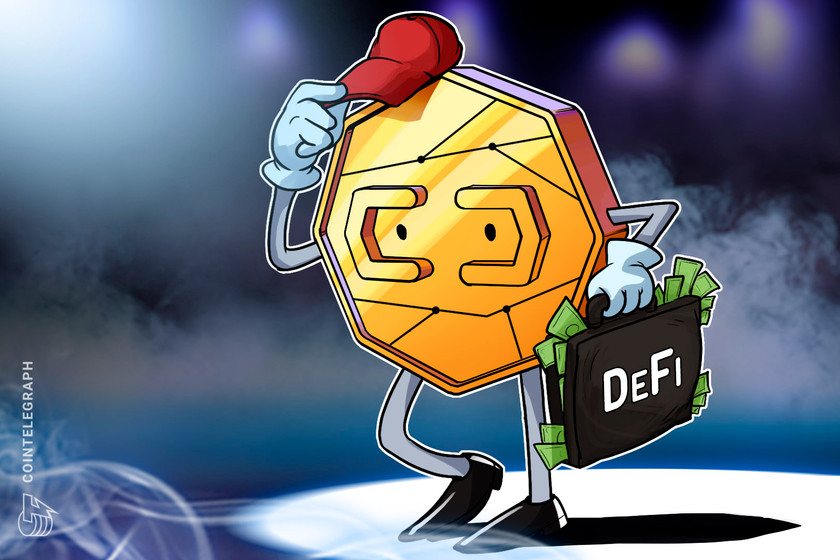DeFi platforms see profits amid FTX collapse and CEX exodus: Finance Redefined

The bears were in control for the second week after FTX collapse, leading to a market-wide dismal performance including top 100 DeFi tokens.
Welcome to Finance Redefined, your weekly dose of essential decentralized finance (DeFi) insights — a newsletter crafted to bring you significant developments over the last week.
The FTX collapse has created a sense of uncertainty among large and retail investors alike, who are not very sure whether they should keep their funds on centralized exchanges or not. The dilemma has led to a major uptick among DeFi protocols and decentralized exchanges.
DeFi protocols and decentralized exchange (DEX) platforms gained some momentum in the aftermath of the FTX implosion. A new report from Delphi Digital suggests DEX platforms gained 24% volume in the wake of the FTX collapse.
In other DeFi news, crypto scammers are actively using black market identities to avoid detection. DeFi protocol 1Inch is looking to optimize gas costs with its new v5 router.
The DeFi market like the rest of the crypto market is still recovering from the turmoil in the aftermath of the FTX collapse. Majority of the top 100 DeFi tokens traded in red for the second week barring a few.
DeFi platforms see profits amid FTX collapse and CEX exodus
A week after the fallout from the FTX and Alameda chaos, some on-chain data points are interesting to observe. Although record amounts of Bitcoin (BTC) and Ether (ETH) are leaving the exchanges, not all DApps and protocols have shown growth, mainly due to reliance on FTX and Alameda.
Combined with the migration away from centralized exchanges (CEXs), the volatile crypto market has users trading in record numbers. According to data from Token Terminal, the daily trading volume of perpetual exchanges reached $5 billion, which is the highest daily trading volume since the Terra (LUNA) and TerraUSD (UST) meltdown in May 2022.
FTX collapse followed by an uptick in stablecoin inflows and DEX activity
Delphi Digital used asset baskets to analyze performance between DEX and CEX tokens and found that when comparing the basket prices to BTC, the DEX basket gained 24% whereas the CEX basket is down 2%.
Generally, on-chain activity correlates to overall Bitcoin, Ether and altcoin market sentiment, with the current FTX chaos catalyzing historic exchange outflows and CEX tokens’ underperformance. A likely trend to emerge from the current chaos is a steady uptick in self-custodied cryptocurrencies and an increase in DEX use.
Crypto scammers are using black market identities to avoid detection: CertiK
Crypto scammers have been accessing a “cheap and easy” black market of individuals willing to put their name and face on fraudulent projects — all for the low price of $8, blockchain security firm CertiK has uncovered.
These individuals, described by CertiK as “Professional KYC actors,” would, in some cases, voluntarily become the verified face of a crypto project, gaining trust in the crypto community prior to an “insider hack or exit scam.”
1inch seeks to optimize gas costs with its new v5 router
According to 1inch, users’ gas costs for swaps will be at least 10% lower than its previous offerings in the DEX segment, therefore making swapping activity on the Ethereum network more profitable for its users.
In the Router v5, 1inch estimated that swaps will be approximately 5% more gas efficient than in the previous version and 10% more gas efficient, compared with the second best performing player in the DEX segment.
DeFi market overview
Analytical data reveals that DeFi’s total value locked plunged to $40 billion. Data from Cointelegraph Markets Pro and TradingView show that DeFi’s top 100 tokens by market capitalization had a bearish meltdown due to the FTX saga, with the majority of the tokens registering double-digit losses over the past week.

Thanks for reading our summary of this week’s most impactful DeFi developments. Join us next Friday for more stories, insights and education in this dynamically advancing space.



